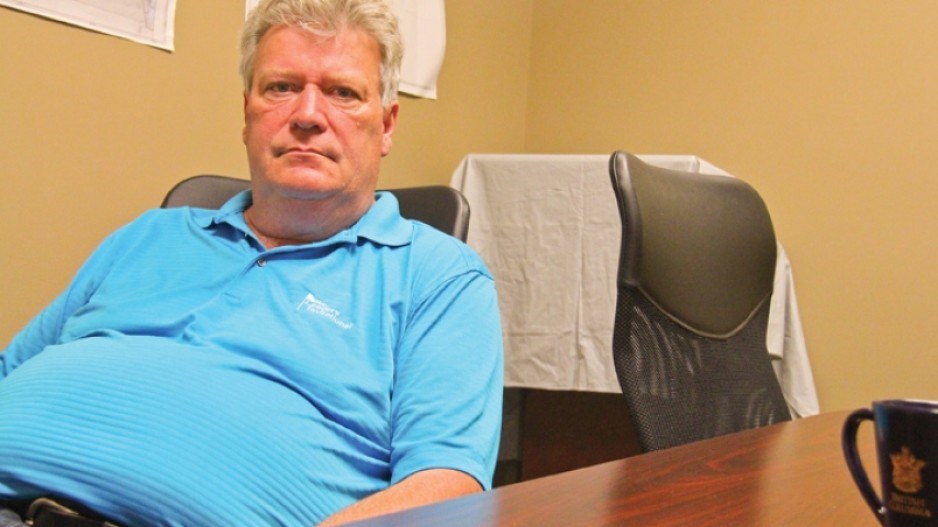Natural Gas Minister Rich Coleman says he remains bullish on B.C.’s LNG prospects despite a string of setbacks and delays.
“I don’t think anybody should step back and say LNG might never happen,” he said in an interview during a visit to Dawson Creek last week for a B.C. Liberal party fundraiser. “It’s going to happen.”
Creating an LNG industry to sell B.C. gas overseas was a key promise of the B.C. Liberals during the 2013 provincial election. The industry has the potential to eliminate B.C.’s debt, create a multi-billion dollar “prosperity” fund to pay for government programs, and reduce climate change by helping Asian countries transition from coal, Premier Christy Clark said on the campaign trail.
Since then, however, there has been little good news for the industry.
Prices took a nosedive in late 2014 thanks to a global supply glut. Since mid-2015, the unemployment rate in Northeast B.C. has climbed as companies lay off workers. In February, the province recorded its first-ever $0 oil and gas land sale.
Many LNG projects are increasingly marginal with the low prices. At least two of the roughly 20 LNG projects proposed for B.C.’s coast have been shelved. Meanwhile, Pacific NorthWest LNG, the presumed frontrunner, has been delayed by the federal environment ministry. A FortisBC deal to sell LNG from an existing plant to Hawaii fell through, and in April, the first LNG ship sailed from the U.S. gulf coast, adding to the global oversupply.
In Northeast B.C., many are pessimistic about LNG’s prospects. Last month, leaders in B.C.’s Peace Region asked government to begin looking at a Plan B for the region’s gas, in case B.C. misses the LNG window (see page 7 for story).
While natural gas prices are low, Coleman said proponents base their investments on three to five year timeframes.
“That’s about the same amount of time it takes to build an LNG plant,” Coleman said.
LNG is “going to happen simply because we have a world class resource and you can drive your costs over time. You have the ability to predict for 50 to 100 years for supply. I don’t know if everybody understands what a world class resource we’re sitting on up here. It is one of the best deposits of natural gas with liquids on the planet.”
While B.C. continues to explore “value-added” industries such as petrochemicals, natural gas liquids, manufacturing and methanol, LNG remains the focus, Coleman said.
Despite the perception that B.C. is a difficult place to get projects built, Coleman said the province has an advantage over U.S. projects: it owns its natural gas.
“If you take the United States for instance, say you want to build an LNG plant,” he said. “You need gas. If you’re drilling for it, you’re dealing with multiple landowners and you’re dealing with a whole bunch of other processes that go with that. Whereas here, because the resource is owned by the province, you have the certainty of your lease and you have the certainty of your supply. And so it’s a way better place to do business from that perspective.”
As for Pacific NorthWest LNG’s environmental review, Coleman expects a decision from the federal cabinet in mid-September.




